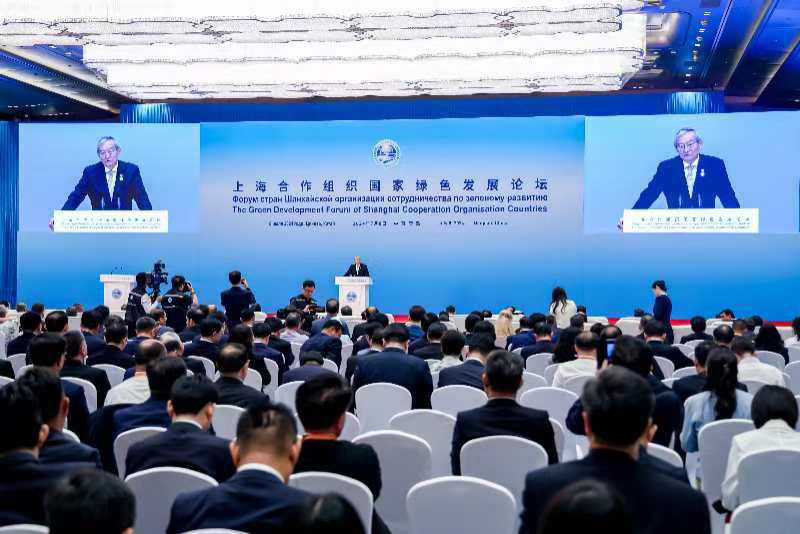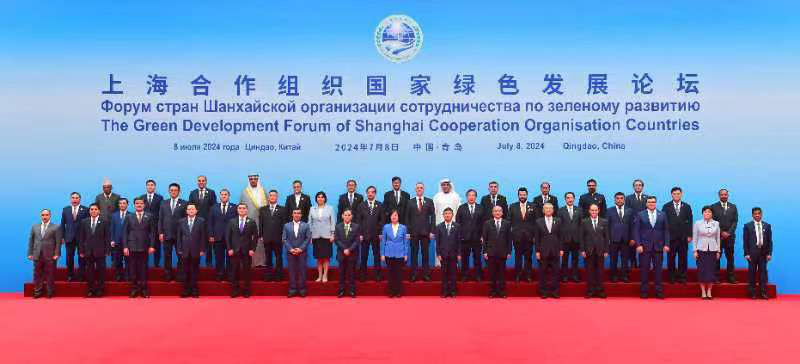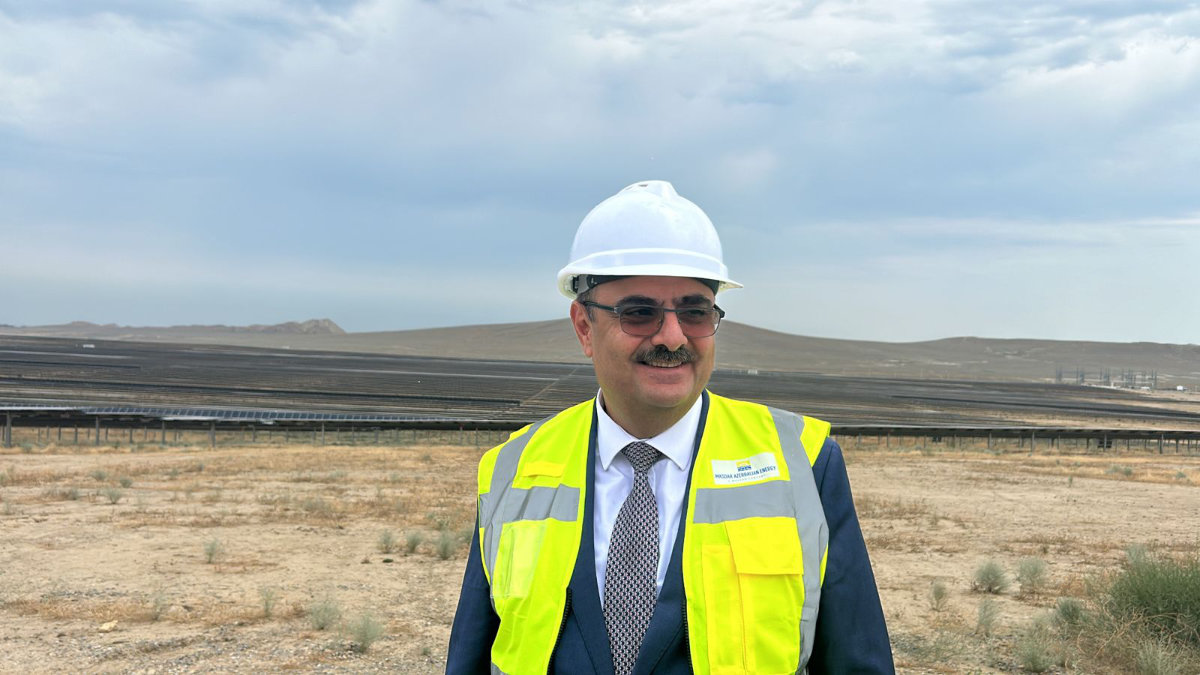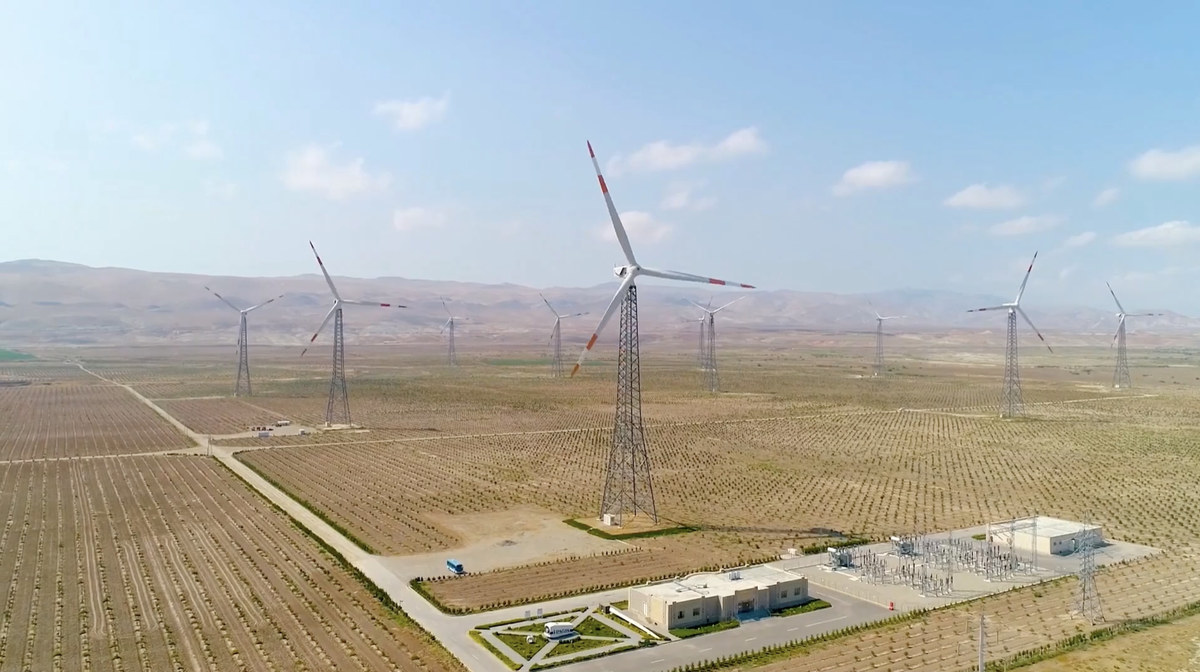QINGDAO, China: As one of the world’s largest economies and contributors to greenhouse gas emissions, China is seen as having a particular responsibility among nations to help address climate change and promote sustainable development.
As such, the Shanghai Cooperation Organization invited Asian countries to participate in a two-day Green Development Forum in Shandong earlier this month to discuss solutions for a greener future.
China’s President Xi Jinping has expressed his desire to strengthen cooperation with regional parties to work toward common social and economic development goals, while at the same time fostering harmonious coexistence between people and nature.

Representatives from various Asian countries attended the two-day Green Development Forum in Shandong, China, earlier this month to discuss solutions for a greener future. (Supplied)
Shen Yueyue, vice chair of the national committee of the Chinese People’s Political Consultative Conference and chair of the Good-Neighborliness, Friendship and Cooperation Commission of the SCO, reiterated the need to foster this link between development and the environment.
“Development is development for all, and good development is green development,” Shen said in her keynote address at the forum, which was themed: “Joining hands in green development, together promoting harmony between humans and nature.”
Opinion
This section contains relevant reference points, placed in (Opinion field)
Green development is a focus for many countries, including Saudi Arabia. Indeed, one of the objectives of the Kingdom’s Vision 2030 reform agenda is ensuring sustainable practices in social and economic development.
Two such strategies launched by the Kingdom to promote green development and a low-carbon future are the Saudi Green Initiative and the Middle East Green Initiative.
Together, these initiatives aim to increase vegetation cover in Saudi Arabia and across the region by planting billions of trees to mitigate the effects of climate change and to help slow the rise of global temperatures in line with the Kingdom’s net-zero commitments

Another regional state that is making green development a key priority is Iran.
During the SCO conference in Shandong’s port city of Qingdao, Ali Salajegheh, vice president and head of Iran’s Department of Environment, discussed his country’s commitment to fighting climate change.
One example of this is the country’s role in hosting the International Conference on Sand and Dust Storms in 2023.

Family picture of the participants of the Green Development Forum held in Shandong, China, earlier this month. (Supplied)
However, Salajegheh believes that addressing social and political issues is crucial to preventing a deepening of the environmental crisis in the region, including the need for economic stabilization and poverty reduction.
“Developing countries should make sure of their social and economic development as the main priority because the fight against poverty and the development of health and the provision of housing and energy is still for a significant part of the developing world considered a basic priority,” he said, according to Iran’s state news agency IRNA.
These efforts and more will be on the agenda at the 29th UN Climate Change Conference — COP29 — in Baku this November. In the run-up to this major event, host nation Azerbaijan has been working hard to achieve its green development goals.
DID YOUKNOW?
Azerbaijan’s capital Baku will host COP29 in November.
COP29 Presidency aims to raise ambition and enable action.
Baku is committed to developing the nation’s renewable energy potential.
Policies include tax breaks on electric vehicles and investment in education.
Although Azerbaijan is a major player in the global oil and gas industry, ranking 20th in the world for proven oil reserves, one of the key pillars of its green development strategy is the rapid expansion of renewable energy infrastructure.
The country has made significant changes to reduce its dependence on fossil fuels, begin the transition to renewable energy, and participate in the global effort to combat climate change.

The 230MW Garadagh Solar Power Plant project in Azerbaijan. (AN photo by Haifa Alshammari)
In 2020, an agreement was signed between Azerbaijan’s Ministry of Energy and UAE firm Masdar to establish the country’s first solar energy facility — the 230-megawatt Garadagh Solar Power Plant.
The project occupies 550 hectares and currently boasts 570,000 bifacial photovoltaic panels, which capture the direct light of the sun and the reflection of sunlight from the ground.
Murad Sadikhov, Masdar’s country manager, told Arab News that the facility has a capacity of 230 megawatts, which generates more than 500 million kilowatt-hours per year.
“Masdar has invested in a total capacity of more than 24GW (gigawatts) of renewable energy projects in more than 40 countries worldwide and aims to increase this to 100GW by 2030,” he said.
“In Azerbaijan, in addition to the 230MW Garadagh Solar Power Plant, the foundations for three renewable energy plants with a total installed capacity of 1GW have been laid.”

Murad Sadikhov, country manager at The 230MW Garadagh Solar Power Plant project in Azerbaijan. (AN photo by Haifa Alshammari)
Alongside the implementation of renewable energy projects, Azerbaijan is also encouraging the public to shift from using fossil fuel-intensive vehicles to adopting green modes of transport.
“The government is promoting a green agenda, not only in terms of establishing generative capacity but also on the demand side,” said Sadikhov.
“They promote electrical vehicles. They started the electromobility master plan. They hired prominent consultants. They established new rules and legislations such as the tax relief for EVs and are promoting EVs for public transportation, trying to maximize the use of electric transportation.”

Significant strides have been made in tapping Azerbaijan’s immense wind energy potential. The Azerbaijan 240 MW Wind Farm, for one, is being developed by Saudi Arabia’s ACWA Power.
Azerbaijan is also investing heavily in raising public awareness about environmentally friendly practices and training the next generation of sustainability professionals. “Most of the universities now have special programs for renewable energy,” said Sadikhov.
Although green development strategies have been adopted by several nations across Asia, experts and officials are keenly aware that more needs to be done to respond to the climate challenge without undermining social and economic development.


































